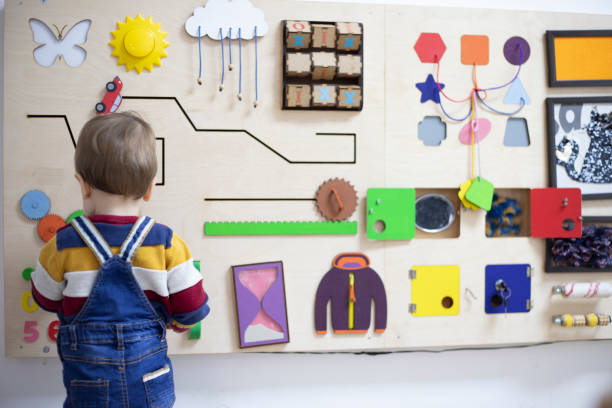Child Centered, Teacher Guided
First, every child learns differently and at their own pace. At Montessori Academy, our teachers create a learning program tailored to each child’s needs and interests. Our prepared classroom environments are specifically designed to encourage children to participate actively in their learning. For this reason, many parents choose Montessori for their children.
Holistic Learning Experience
Also, the Montessori Curriculum covers five key areas that focus on the full development of the child. Key curriculum areas are: practical life, sensory, mathematics, language and culture. The Montessori Curriculum teaches children’s real-life skills, while also connecting them with the educational programs that children will learn at school.
Social Development and Cooperation
In a Montessori classroom, children in three age groups are often grouped together. This structure encourages children to role models, collaborate with others, and encourage imitation learning. As a result, children learn to respect each other, develop team-building skills and create a sense of community. Parents recognize that these soft skills are important for their child’s full development. All in all, this is one of the main reasons why parents choose Montessori.
Confident Lifelong Learners
Moreover, self-correction and self-assessment are an integral part of Montessori education. As children progress through the Montessori Curriculum, they learn to look critically at what they do and correct their mistakes. By giving children the freedom to question and connect, students learn to be confident and independent learners.
Extremely talented and passionate staff
All Child Work Kindergarten teachers undergo extensive training in Montessori and early childhood education and care. In addition to relevant qualifications and strong experience, Child Business Kindergarten also offers staff opportunities for continuing education and development. As a result, Kids Business Kindergarten teachers constantly update their skills and knowledge to run a best practice Montessori classroom.
Well-Resourced Learning Environments
Our primary consideration in the design of our learning programs, facilities and classrooms is to create a learning environment that supports children’s interests and the developmental needs they need as they grow. In this nurturing environment, a love of learning thrives and builds positive foundations for life.
Best Practices
Child Business Kindergarten adheres to best practice standards for early childhood education and Montessori early learning. Our view is that education should prepare children for later school and life success. As doctor Maria Montessori puts it: “Education should take a new way to ask for the release of human potentials, not mostly to impart knowledge.”
Everything about the Montessori classroom promotes independence. The environment is ready for the child to learn to learn things that should be done by an adult. Over time, children begin to take pride in doing things independently. These tasks include washing dishes, caring for plants, and folding diapers. As a result, this is not only empowering for the child, but also gives them confidence and a sense of personal accomplishment.
Main Satisfaction
Parents are highly satisfied with their child’s learning experience at Child Business Kindergarten. Many credit the strong educational institutions their children receive with their later school and life success. When he first started Montessori school, he couldn’t write letters or make a sound. He can now write capital and lowercase letters, write lowercase words and read and write his name. The center is always actively learning ways to show and say in a fun way, dress up the day and present children with something new and challenging every day…
Learning is fun
In a Montessori classroom, you learn all areas of the curriculum by actively participating in activities that engage the multiple senses. For example, children learn from art and culture, a character from history, from painting their own masterpieces and cooking from different cultures by learning teachers. Learning does not come from listening to lectures, it is experienced by participating in the world around them in an engaging, genuine and appropriate way.
